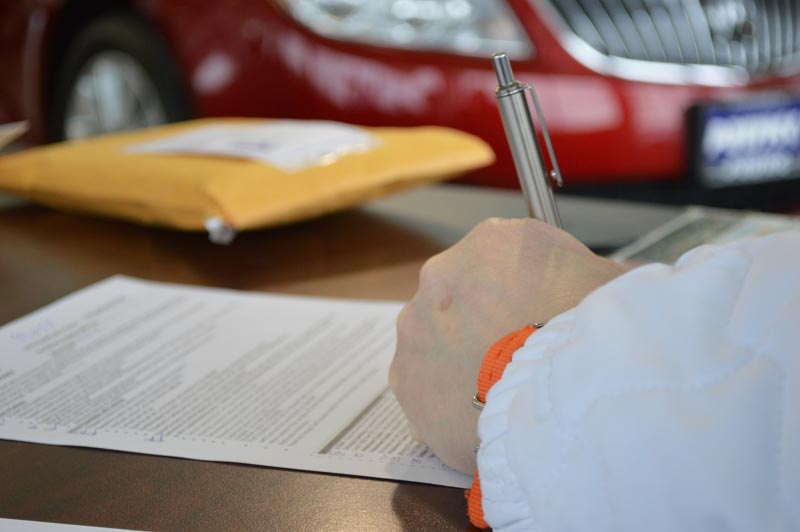Federal Housing Administration, or FHA, loans are one of the most common types of loans for first time home buyers. These loans are backed by the federal government, thus making them less risky for lenders.
Buyers with modest income can buy their dream home and participate in the perks of homeownership, like building equity. The question may arise however when rates are as low as they are currently, like is there such a thing as an FHA refinance? The answer, absolutely.
Take a look at this guide to refinancing an FHA loan to lower your interest rate.
Can You Refinance an FHA Loan?
It is natural to assume that the perks of an FHA loan seem too good to be true. Buyers can borrow as much as 96% toward the purchase of a home with average credit in the neighborhood of their choosing.
FHA loans exist for a reason. They help millions of working-class Americans achieve the dream of homeownership. These Americans might not have stellar credit or the 20 percent down payment required by many conventional loans but want a shot at making an investment in real estate.
Once the home is purchased, FHA borrowers have much of the same access to refinancing as other borrowers. Keep in mind that a refinance is still a home loan.
You will be required to go through many of the same steps you went through to get your initial FHA loan. Here are some of the ways you can use your FHA refinance.
Lower Your Interest Rate
The best reason to refinance your home is to lower your interest rate. Since a refinance requires getting a new home loan, it means you will have to qualify for the lender’s terms.
Shop around to make sure the rates are affordable. One common type of FHA refinance is a program offered by the Department of Housing and Urban Development called a streamline refinance.
With a streamline refinance, expect more lenient lending requirements than conventional mortgage refinances. In some cases, you might not have to get an appraisal or pay closing costs.
The term streamline refers to the fact the loan application paperwork is much lighter in comparison to other types of refinancing. Here are the basic requirements of a streamline refinance:
- You have an FHA loan;
- You are current on your mortgage payments;
- You must have equity in your home, save money in interest payments or another ‘net tangible benefit’.
A good rule of thumb when refinancing to save on your interest rate is to refinance when you can save at least 1-2 percent. Reducing your interest rate helps you build equity faster and offers lower monthly mortgage payments.
In some cases, 1 percent might be enough savings to refinance your mortgage loan depending on your overall financial goals and the out of pocket costs associated with the loan, if any.
Government to Conventional
When you do an FHA refinance, a down payment is not required. With a conventional loan, it requires 20% equity in the home when you refinance in order to avoid PMI, meaning that if you do not meet that criteria, then you could face paying private mortgage insurance on the new loan.
The downside to switching to conventional is that you might be subject to fees when closing on the loan. You can also expect higher credit score requirements, private mortgage insurance and more, if you do not meet the minimum requirements.
These costs can cancel out any savings you receive from the refinance if you aren’t careful.
Turning Equity Into Cash
Another common reason for an FHA refinance is pulling cash out to cover major projects, like remodeling. When your home’s property value is increasing steadily, it might be a good time to move forward with renovations.
Certain renovations add to the value of your home, but usually not more than 60 percent of what you spend. Most financial experts warn borrowers not to use equity to cover things, like personal emergencies or debt.
Adjustable to Fixed Interest Rate
If you have an adjustable rate mortgage, a refinance can be just what you need to create more stability in your household budget. Adjustable-rate mortgages mean fluctuations in your monthly mortgage payment that aren’t affordable if you ever experience a setback in income.
Fixed-rate mortgages provide stability because you know what your mortgage payments will be every month.
FHA Refinance Requirements
It is a good idea to have cash on hand for closing costs no matter the type of refinance you choose. With an FHA refinance, you have more options to reduce paperwork and more lenient underwriting.
Make sure you are prepared for a refinance in the same way you prepared for your initial mortgage loan. You will need proof of income and a low debt to income ratio, and meet the credit score minimums.
A debt to income of 36 percent or less is recommended for borrowers. This is 36 percent of your gross, not your net, income.
If the loan will be higher than your original mortgage amount, make sure you calculate your debt to income based on the new mortgage amount.
It might reveal that the refinance is less affordable than you would originally hoped.
Should I Refinance My Mortgage Loan?
If you have the opportunity to save more than 2 percent on your mortgage loan, it is a good idea to explore an FHA refinance. Shop around for the best mortgage terms so you do not get hit with high fees when it is time to close on the loan.
Make sure you have a consistent income and moderate creditworthiness before you start the process. To get a quote on a mortgage refinance, contact us today.
7th Level Mortgage is a leading one-stop mortgage company providing deeply informed, custom-tailored assistance with every phase of each mortgage transaction. If you are searching for a home loan in New Jersey, Pennsylvania, Virginia, Delaware, Maryland, New York, or Florida, please contact us today so that we can determine the best Mortgage Lender to place your loan with and get you the best possible rate and program.

